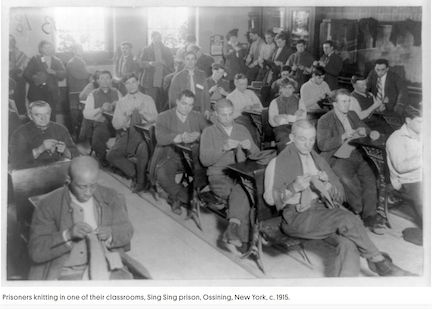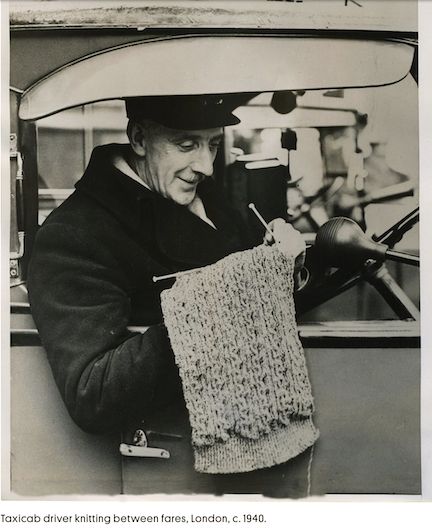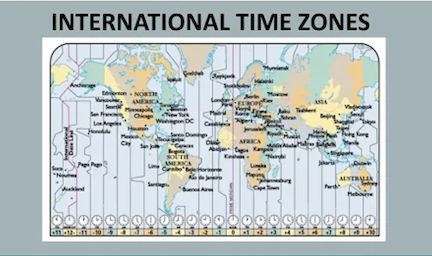Mortality Captured in a Selfie
For six years Dr. Pratik Joshi had been dreaming of a new life for himself and his family. He had been living and working in London, preparing to bring his wife and children there to join him. After years of hard work, the time had finally come. He flew to western India to retrieve his family to begin living their dream.
Just two days prior to departure for the UK, his wife, Dr. Komi Vayas resigned her position, packed up their belongings, and prepared her children for the flight to their new home.
They then boarded Air India flight 171 and snapped this selfie of their happy, hopeful family as they anticipated departure for the future that awaited them.

(Image, X/@theskindoctor13)
Then, just 32 or so seconds after taking off, the plane began to fall from the sky, crashing into a residential neighbourhood in Ahmedabad. The crash killed all 242 passengers on board, including Joshi, Vayas, and their three young children.
We make our plans. We dream our dreams. Yet ... Life is short, fragile, unexpected. While we plan for or dream of a thousand tomorrows, we cannot know what tomorrow, or even the next 32 seconds will bring.
Make your plans. Dream your dreams. But do all in accordance with the will and heart of the Lord, remembering that "[we] are a mist that appears for a little time and then vanishes."
"The heart of man plans his way, but the Lord establishes his steps" (Proverbs 16:9, ESV).
"Many are the plans in the mind of a man, but it is the purpose of the Lord that will stand" (Proverbs 19:21).
"Come now, you who say, 'Today or tomorrow we will go into such and such a town and spend a year there and trade and make a profit'— yet you do not know what tomorrow will bring. What is your life? For you are a mist that appears for a little time and then vanishes. Instead you ought to say, 'If the Lord wills, we will live and do this or that'" (James 4:13-15, ESV).
May God comfort the hearts of the grieving in the wake of this tragedy. May they find HIM as they contemplate their own mortality. So may we all.
Knitting Away Idleness
Weird Wonders reports:
In 1918, if you saw a woman walking down the street, chances are her hands weren’t idle. With needles clicking and yarn flowing, she was likely knitting on the move—adding rows to a pair of socks while heading to work or strolling through town. It wasn’t unusual. It was everyday resilience, wrapped in wool.
During [World Wars I & II], knitting wasn’t just a pastime—it was a patriotic act. Women across the Allied nations answered the call to support soldiers overseas by crafting socks, scarves, mittens, and caps. Red Cross campaigns and posters urged them to “Knit for Victory,” and they responded—often using every spare moment to help. Even their walks became turned into a workshop.
But this wasn’t just about necessity. It showed skill, determination, and a beautiful kind of multitasking. These women made the most of each moment, choosing usefulness over leisure, weaving warmth and care into every stitch. In a time without modern distractions, they found meaning in motion—turning something as simple as walking into a gesture of hope and solidarity.
It’s a small glimpse into the strength of that generation—and the quiet ways they changed the world.

Knitting while walking was more than just a practical skill—it carried deep cultural significance. In many communities, particularly in Scotland and England, it symbolized efficiency, industriousness. Women, especially fisherwomen, would knit while walking to maximize their productivity, ensuring that every moment was used most efficiently.
Beyond practicality, knitting while walking also reflected social and communal traditions. It was often done in groups, fostering a sense of community and shared purpose. In some cases, it was even seen as a form of resistance and empowerment, as women used their craft to support their families and contribute to local economies.
The act of knitting while walking, in particular, reinforced the idea that women could balance domestic responsibilities with broader societal contributions.
But knitting in what would otherwise be "idle" moments was NOT just female phenomenon. Even young school boys, prison inmates, and taxi-cab drivers got in on the action.



Time is ticking away. Are you making the best use of it?
Okay, you may not want to take up knitting. But are there small habits you can incorporate into you day to turn your idle time into more productive time? Perhaps making phone calls of encouragement while driving to work or the grocery store, or going through your prayer list while fixing supper, or listening to Scripture while you mow the lawn or work on the car. Or better still, turn off the TV and go mow your elderly neighbor's lawn! You get the idea ... just be creative!
Now, by way of balance, we are not called to fill EVERY idle moment with meaningful activity. After all, it was the Lord Himself who ordained the Sabbath rest. Yet we are still admonished in Scripture to make the best use of our time to: 1) to take opportunities for ministry and service, and 2) to avoid the traps of idle hands, hearts, and lips.
So pick up some needles [literal or figurative LOL] and get going! Like the knitters of generations gone by, "in quiet ways" we "can change the world!"
"Look carefully then how you walk, not as unwise but as wise, making the best use of the time, because the days are evil. Therefore do not be foolish, but understand what the will of the Lord is" (Ephesians 5:15-17 ESV).
"Besides that, they learn to be idlers, going about from house to house, and not only idlers, but also gossips and busybodies, saying what they should not" (1 Timothy 5:13 ESV).
She looks well to the ways of her household and does not eat the bread of idleness" (Proverbs 31:27, ESV).
"For we hear that some among you walk in idleness, not busy at work, but busybodies" (2 Thessalonians 3:11 ESV).
"A slack hand causes poverty, but the hand of the diligent makes rich" (Proverbs 10:4, ESV).
"For you remember, brothers, our labor and toil: we worked night and day, that we might not be a burden to any of you, while we proclaimed to you the gospel of God" (1 Thessalonians 2:9 ESV).
"A little sleep, a little slumber, a little folding of the hands to rest" (Proverbs 6:10 ESV).
God's Time Zone
For ages, people used the sun to determine what time it was where they were. Every community set its clocks to noon based on when the sun reached its highest position in the sky; as a result, when it was noon in Washington, D.C., the local time in New York City was already minutes ahead. Before the days of long-distance travel, differences in local times weren’t a big deal. That changed with the rise of railroads in the 1800s. Although it was now possible to travel significant distances faster than ever before, a multitude of local times, particularly in large countries such as the United States, made things confusing when it came to train schedules.
On November 18, 1883, America’s railroads began using a standard time system involving four time zones: Eastern, Central, Mountain, and Pacific. Within each zone, all clocks were synchronized. The railroad industry’s plan was adopted by much of the country, although the time-zone system didn’t become official across the United States until the passage of the 1918 Standard Time Act, which also established daylight saving time. By the mid-20th century, most of the world had adopted a system of international time zones, in which the planet is divided into 24 zones spaced at intervals of approximately 15 degrees of longitude. In 1884, delegates from more than two dozen nations met at the International Meridian Conference, held in Washington, D.C., where they chose the line of longitude running through the Royal Observatory in Greenwich, England, as the official prime meridian, or zero point of longitude.
Today, Russia, the world’s largest nation in terms of land mass, has 11 time zones.
But China, the fourth-largest by area, has just 1 time zone! Before 1949, China had five time zones. After the rise of communism, the government required the entire country to operate on China Standard Time for the sake of national unity.

The Ancient Greek word kairos (καιρός) means "the right time" or "opportune moment" (as opposed to chronos (Χρόνος) which means actual "time" and refers to a quantitative or exact measurement of time). It's used to describe a special moment when it's the best "time" to say or do something.
Many years before the Greek NT was composed, the writer of Ecclesiastes tried to help humanity with achieving a unity of timeliness which the Chinese government will never achieve through a mandated, nationwide time zone. Ecclesiastes 3:1-11 offers us the opportunity, as God’s children, to have a unified perspective of kairos (καιρός) — time.
3:1 There is a time for everything,
and a season for every activity under the heavens:2 a time to be born and a time to die,
a time to plant and a time to uproot,
3 a time to kill and a time to heal,
a time to tear down and a time to build,
4 a time to weep and a time to laugh,
a time to mourn and a time to dance,
5 a time to scatter stones and a time to gather them,
a time to embrace and a time to refrain from embracing,
6 a time to search and a time to give up,
a time to keep and a time to throw away,
7 a time to tear and a time to mend,
a time to be silent and a time to speak,
8 a time to love and a time to hate,
a time for war and a time for peace.9 What do workers gain from their toil? 10 I have seen the burden God has laid on the human race. 11 He has made everything beautiful in its time. He has also set eternity in the human heart; yet no one can fathom what God has done from beginning to end.
ALTERNATE APPLICATION: In the end, it isn't so much about how you render time, but how you use it.
"Making the best use of the time, because the days are evil" (Ephesians 5:16, ESV).
"Walk in wisdom toward outsiders, making the best use of the time" (Colassians 4:5, ESV).